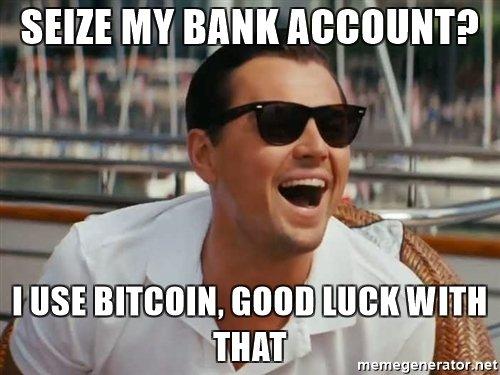This article on Time Magazine is a must read. We are publishing excerpts for a taste of what’s in it.
The author, Alex Gladstein is Chief Strategy Officer at the Human Rights Foundation and Guest Lecturer at Singularity University. Please listen to his conversation on this podcast which is equally interesting.
Finally, to demonstrate the uncensorable nature of bitcoin, there is an “Easter egg” in our article which will allow you to collect 1000 satoshis (0.00001 bitcoin) without any involvement from us. Please consider giving us a shoutout when you find it and collect it !
(…)
Because they live under authoritarianism, Venezuelans have no way to reform the policies that have destroyed their economy. They can’t hold their rulers accountable through free and fair elections or campaign for change without fear of reprisal. As they stand in hours-long lines for rationed groceries and medicine and watch their life savings disappear, it can seem like there are no options.
But innovation happens at the edge. Today, Venezuelans are adopting and experimenting with Bitcoin to evade hyperinflation and strict financial controls. Speculation, fraud, and greed in the cryptocurrency and blockchain industry have overshadowed the real, liberating potential of Satoshi Nakamoto’s invention. For people living under authoritarian governments, Bitcoin can be a valuable financial tool as a censorship-resistant medium of exchange.
(…)
To circumvent this bureaucracy, some Venezuelans have started to receive bitcoin from their relatives abroad. It’s now possible to send a text message to your family asking for bitcoin, and receive it minutes later for a tiny fee. Government censorship isn’t possible, as bitcoin isn’t routed through a bank or third party and instead arrives into your phone wallet in a peer-to-peer way. Then you can, moments later, sell your new bitcoin into fiat through a local Craigslist-style exchange, or load it onto a flash drive (or even memorize a recovery phrase) and escape Venezuela with complete control over your savings. A popular alternative – have your family wire money to a bank in Colombia, walk across the border to withdraw, then walk back to Venezuela with cash in hand – can take far longer, cost more, and be far more dangerous than the Bitcoin option.
Venezuela isn’t the only place where people can use Bitcoin as an escape valve. In Zimbabwe, Robert Mugabe printed endless amounts of cash and inflated the savings of his citizens into nothing, but his successors can’t print more bitcoin. In China, Xi Jinping can track all of your transactions on Alipay and WePay, but he cannot orchestrate mass surveillance on all Bitcoin payments. In Russia, Vladimir Putin can target an NGO and freeze its bank account, but he can’t freeze its Bitcoin wallet. In a refugee camp, you might not be able to access a bank, but as long as you can find an Internet connection, you can receive bitcoin, without asking permission and without having to prove your identity.
‘Why Bitcoin Matters for Freedom‘ by Alex Gladstein
